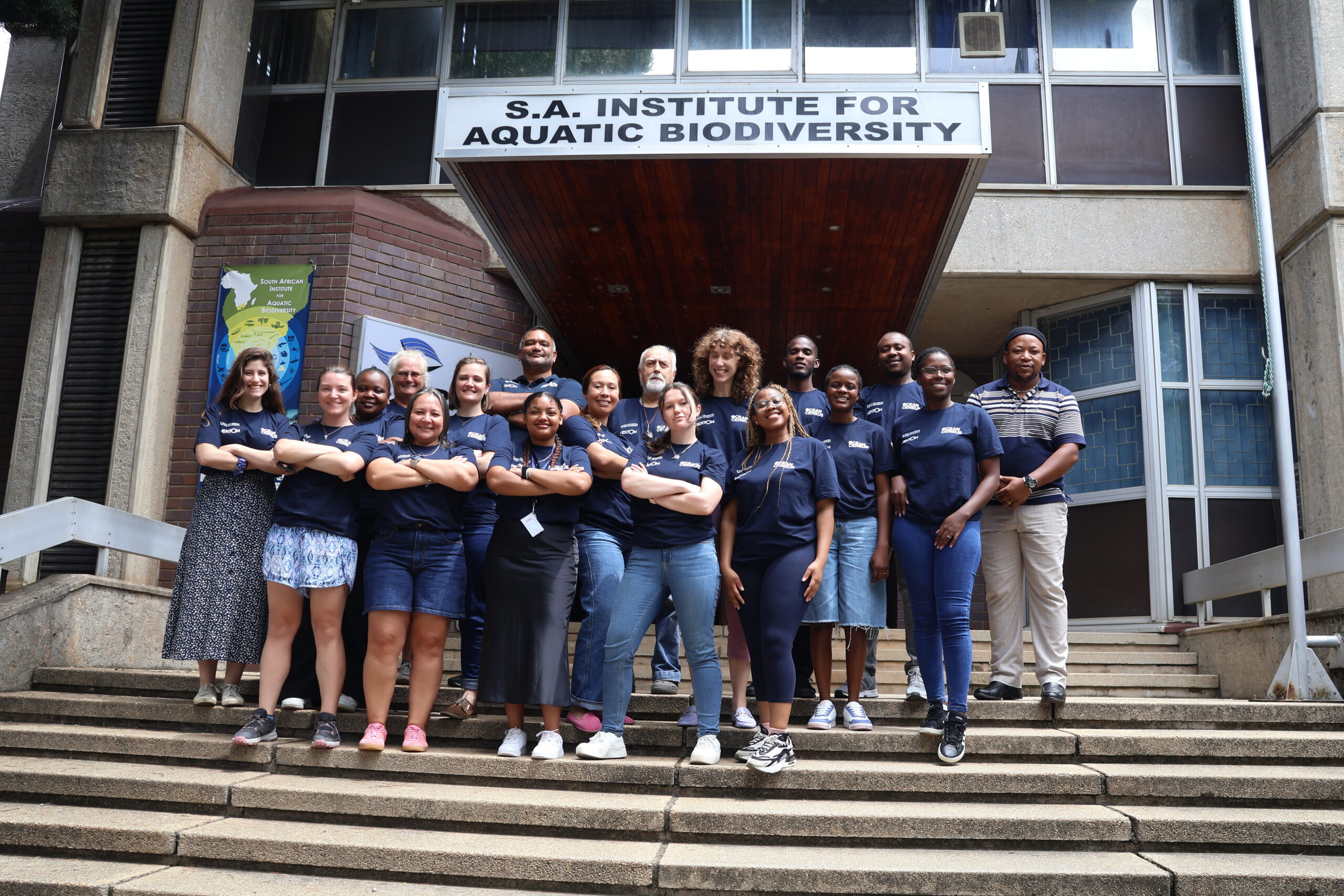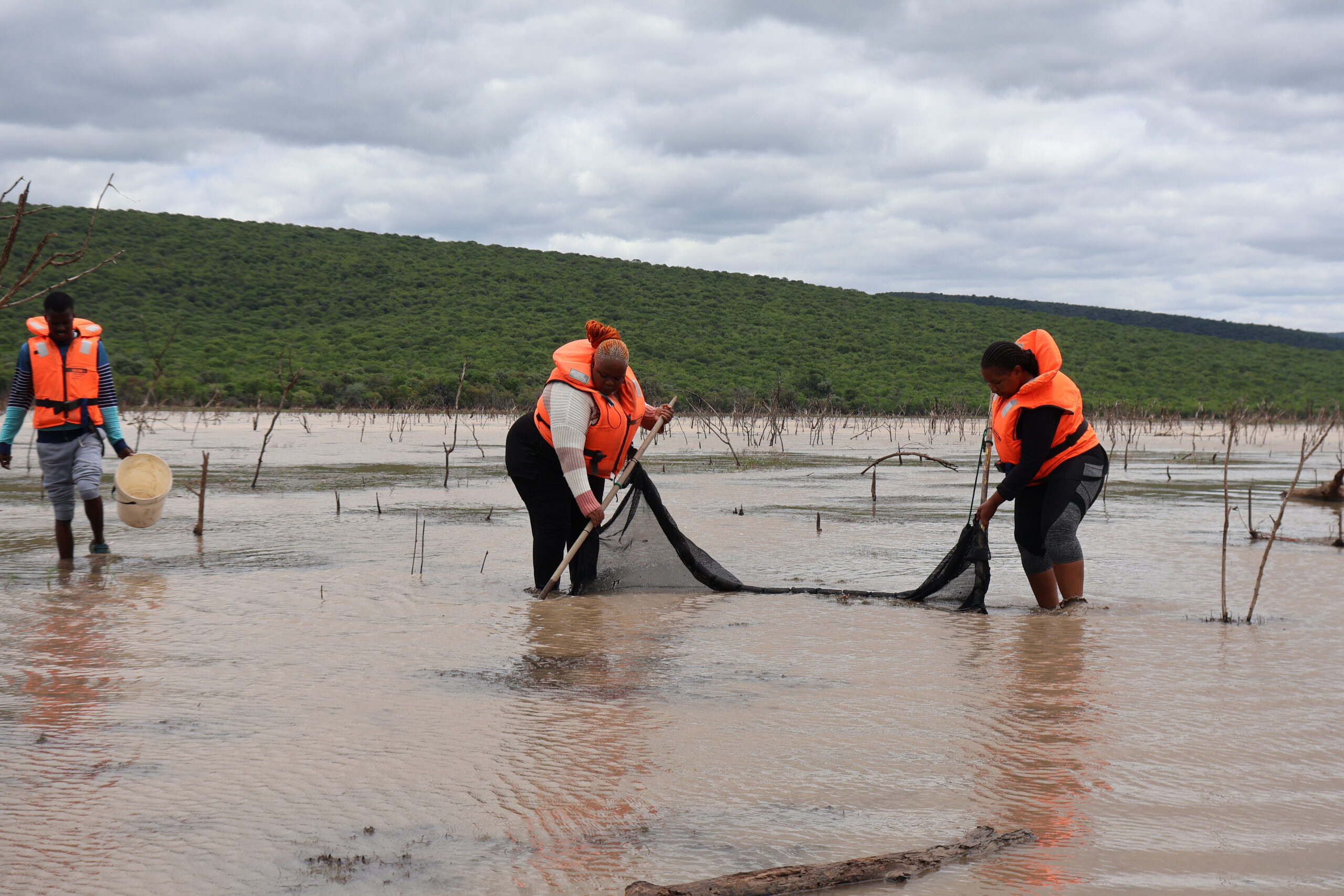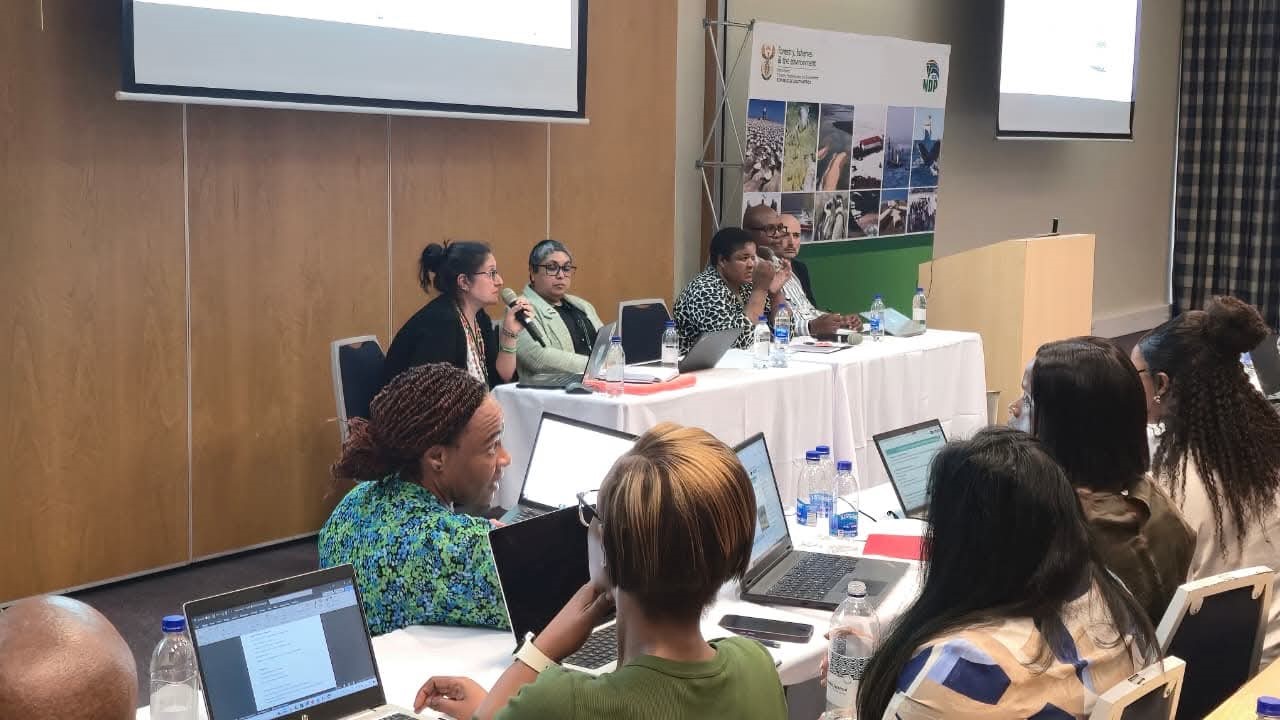By Jabulani Ndaba and Nobuhle Mpanza (NRF-SAIAB PhD Research Students)
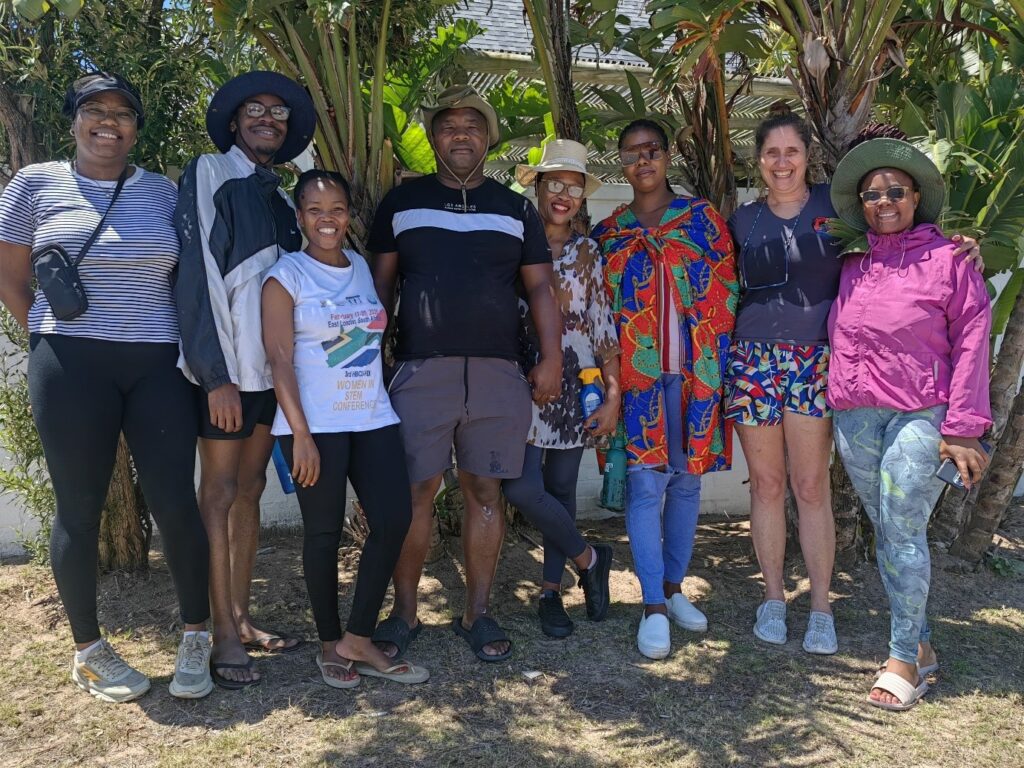
For years, African indigenous knowledge has often been marginalised in community-scientific based research, leading to the enforcement of policies and practices onto local communities without initial consultations and involvement in addressing environmental issues. This has led to a significant gap between scientific practices and the community perspective. However, recent endeavours made by various organisations locally and internationally have sought to rectify this oversight, particularly in the context of environmental rehabilitation, conservation, and management.
In South Africa, rural communities hold a wealth of indigenous knowledge that offers rich and unique insights into practices that incorporate sustainable human interactions with nature, that which the traditional scientific community often oversee. In recognising the importance of involving local indigenous communities and their knowledge, collaborative efforts between the Indigenous Marine Innovations for sustainable Economies and Environments (IMIsEE) from the NRF-South African Institute for Aquatic Biodiversity (SAIAB) and the Keiskamma Trust (KT) from Hamburg, South Africa have emerged. This partnership has resulted in the initial designing and co-creation of the first nature-based eco-engineered prototype that is created by incorporating Indigenous Knowledge into science driven ecological engineering principles. This nature-based prototype is a first of its kind in South Africa and likely around the world, aimed at rehabilitating the functionality and biodiversity of human-impacted coastal environments such as harbours and marinas.
The weekend of the 26th and 27th of January 2024 marked an exciting opportunity for both the NRF-SAIAB IMIsEE and KT teams to share experiences from best of both worlds when it comes to marine science and Indigenous Knowledge and innovation. After months of hard work, underlined by trust and continuous engagement between the science and community teams for the co-creation of the nature-based structures, the KT team spent two days in the field with the NRF-SAIAB IMIsEE research team under the guidance of Prof Francesca Porri.
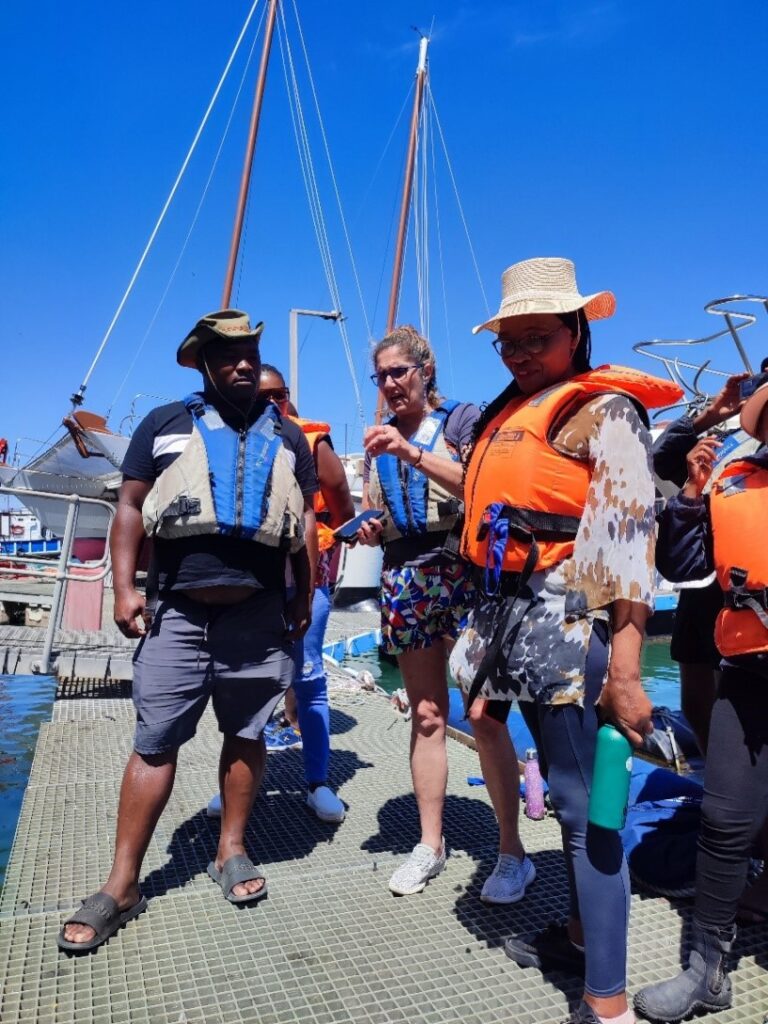
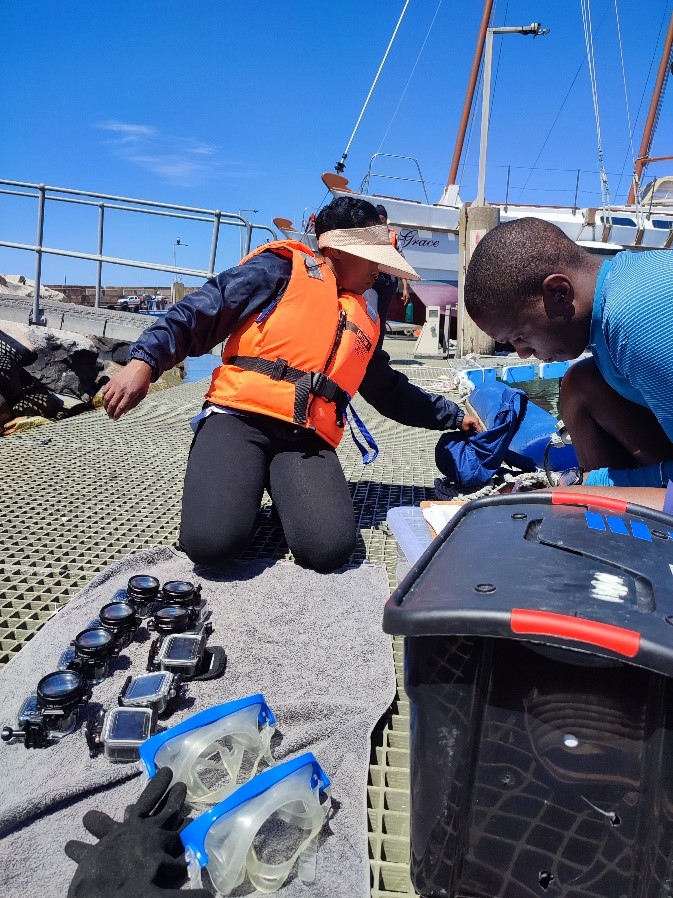
Prof. Francesca Porri giving the Keiskamma Trusts team a broad overview of the different projects being conducted through the IMIsEE team (Left photo). SAIAB-Groen Sebenza intern Xolani Nabani and Postdoc Dr Nokubonga Mbandzi prepping under water cameras for deployment (Right photo)
This hands-on engagement provided a platform for the IMIsEE students to showcase their research, offering the KT team the chance to interact and give more practical feedback on the structures deployed in the Port of St Francis and ways of improving their designs for future experimental applications. The engagement involved sharing details of the experimental design of the deployed eco-engineered nature-based structures and monitoring of macroalgal succession and larval assemblages by PhD student Nobuhle Mpanza. Water quality, microalgal communities and larval food-webs were also assessed by PhD student Jabulani Ndaba. Furthermore, underwater camera work was conducted by SAIAB-Groen Sebenza Intern Xolani Nabani in collaboration with Dr Kerry-Ann van der Walt. This interaction was not just about a knowledge exchange; it was a close opportunity for improving the co-creative partnership for the proposed innovative rehabilitating ecological engineering in coastal urban environments. Given the tight transdisciplinary nature of this research, this engagement also provided a prospect to introduce a new IMIsEE Honours student, Matsobane Malebatja, who will be working closely with the KT community and draft a code of conduct for science-community research relations.
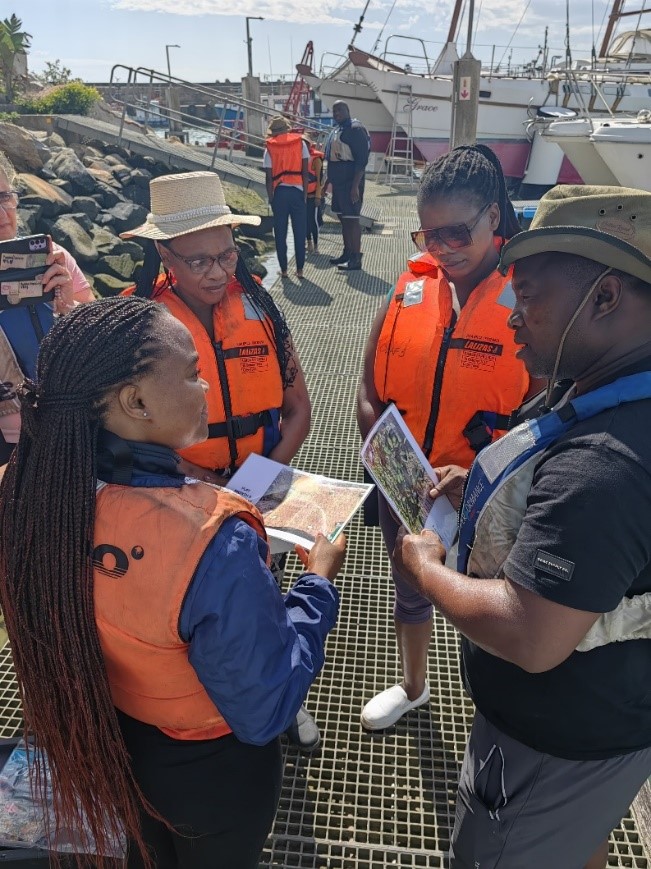
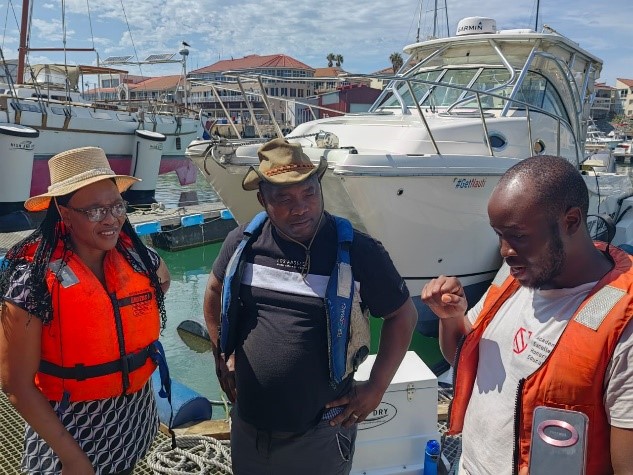
PhD student Nobuhle Mpanza engaging with the Keiskamma Trust collaborators about her research on biodiversity and durability of eco-engineered nature-based structures as well as explaining how a larval light trap works (left photo). PhD student Jabulani Ndaba sharing his research on diatom species found on the eco-engineered structures (right photo).
The IMIsEE project not only focuses on sustainably rehabilitating urban coastal habitats, but also prioritises the preservation and crucial role of Indigenous Knowledge in South Africa. As the SAIAB-KT partnership moves forward, it is crucial to foster collaborations and engagement initiatives that involve, empower, and promote environmental awareness in South Africa.
